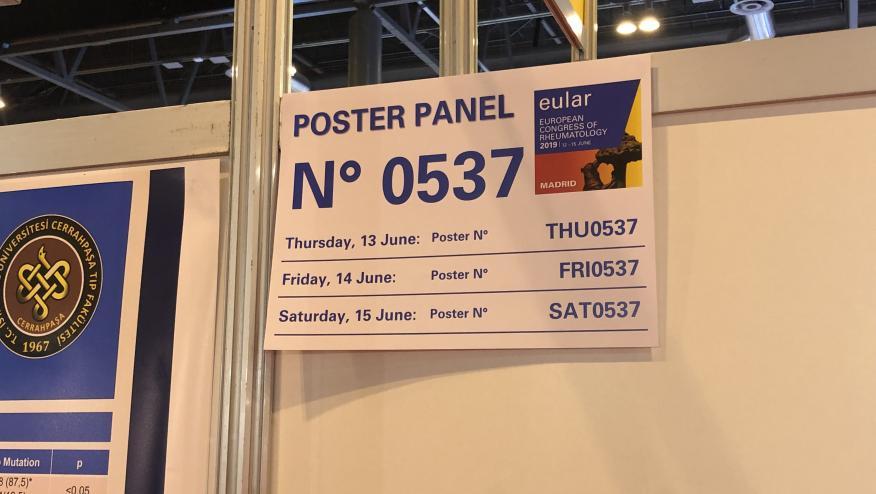EULAR 2021 – Day 1 Report Save

After the opening ceremonies and keynote speaker there were several enticing sessions and a plenary session full of great research and presentations. Here are a few of the highlights that I saw.
- RTX and JAK Risks in RA COVID Patients: Abstract OP0006 – Dr. Jeff Sparks presented an analysis of rheumatoid arthritis (RA) outcomes based on use of DMARDs, biologics or JAK inhibitors (JAKi). While the outcomes of many rheumatic patients infected with COVID-19 have been surprisingly good, some studies have suggested that disease activity and certain meds may pose risks. Analysis included data up till April 12, 2021. They looked at 2869 RA patients given biologics or JAKi with outcomes compared to TNF inhibitor use (most common) – specifically looking at abatacept, rituximab, IL-6 inhibitors and JAKi. Their data showed more hospitalizations with RTX treated RA patients and 15% risk of death. RTX had a 4-fold increased risk of hospitalization and death, and JAKi had a 2 fold increased risk for the primary endpoint of COVID-19 severity. These data were hampered by channeling bias, as many of these patients had worse disease and serious comorbidities.
- Fecal Microbiota Transplants Fail in PsA: Abstract OP0010 – Kragsnaes and colleagues from Denmark presented their study of 31 active PsA patients (despite MTX) who were treated with placebo or fecal microbiota transplants (FMT). All patients were on background MTX. The primary endpoint at week 26. There were more treatment failures in the FMT group (60% vs. 15%) compared to placebo. FMT was inferior by several measures, including HAQ, need for IA steroid injections, need for new biologics, ACR 20 (47% vs. 50%) and enthesitis scoring. Despite its inefficacy, FMT safety was acceptable. This trial questions the microbiome as a potential target for the treatment of PsA patients. The results of this FLORA trial will soon be published in Annals of Rheumatic Disease.
- Passive Smoke Exposure and RA: OP0012 – Nguyen and colleagues studied the role of smoking and RA, specifically looking at passive smoke exposure (PSE) on the risk of RA. They showed their results of the E3N-EPIC cohort study looking at childhood or adult PSE. This French study included nearly 99,000 women followed by questionnaires; amongst this group there were 698 incident RA cases. PSE was experienced by 14 of children and 54% of adults. PSE significantly increased the risk of developing RA by 24% (HR 1.24). Amongst never smokers, PSE exposure during childhood increased the risk of RA by 40% (HR 1.40). Risk of RA was highest in women exposed to both active and passive smoke (HR 1.5)
ADD THE FIRST COMMENT
Disclosures
The author has no conflicts of interest to disclose related to this subject










If you are a health practitioner, you may Login/Register to comment.
Due to the nature of these comment forums, only health practitioners are allowed to comment at this time.